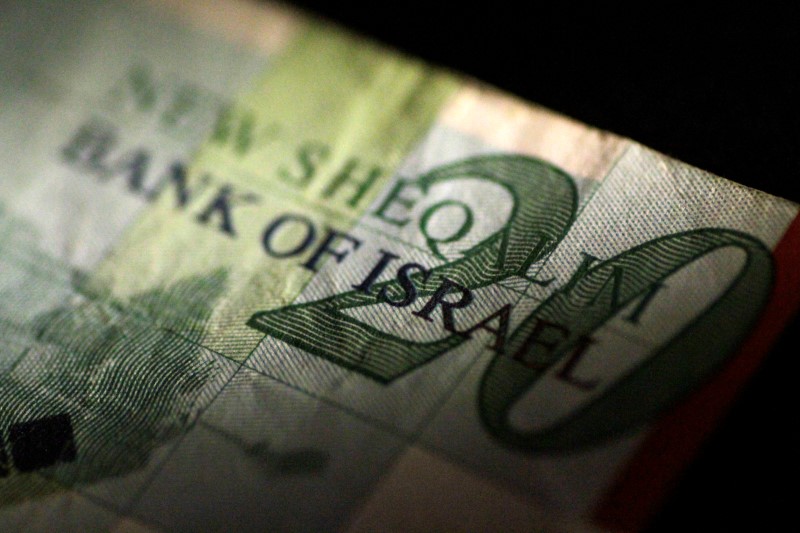By Steven Scheer
JERUSALEM (Reuters) - The Bank of Israel on Sunday said currency trading driven by computer models has jumped and is helping to keep the shekel
The central bank said it has monitored every conversion transaction between Israeli and foreign currencies, as well as every deal involving the Israeli currency in foreign currency, index, and interest rate derivatives.
Israelis and foreigners who carry out a foreign currency derivative transaction have been required to report such deals to the central bank for the past year.
"In the last month, we have seen a large increase in interest in the shekel by model-driven accounts. This would appear to have been one of the factors behind the shekel's appreciation," the Bank of Israel told Reuters in an emailed statement.
The shekel rose to a 3-1/2 year high against the dollar in 2017, while it gained 5 percent versus a basket of currencies of Israel's main trading partners. In 2018, the shekel is up nearly 2 percent against the dollar to 3.41.
Because the central bank thinks the gains are not necessarily down to economic issues, such as the current account surplus, it has been buying foreign currency to prevent a more rapid appreciation, given that a strong shekel is harming exports.
"Notwithstanding the improvement in the state of the economy, which is a basic factor in the strengthening of the shekel, the shekel remains over-valued," the Bank of Israel said.
It said it "will continue to intervene in the market, as it has done recently, as long as there are exchange rate fluctuations that are not in line with economic fundamentals".
While in the past domestic banks dominated currency trading, offshore players have now boosted activity by about 40 percent, the bank said.
Bank of Israel Governor, Karnit Flug, referred to speculators in a speech earlier this month.

"We have identified players that are not necessarily connected to real trading activity ... and we have also intervened in this regard," she said, adding that lingering expansionary monetary policies taken by some countries are also propping up the shekel.